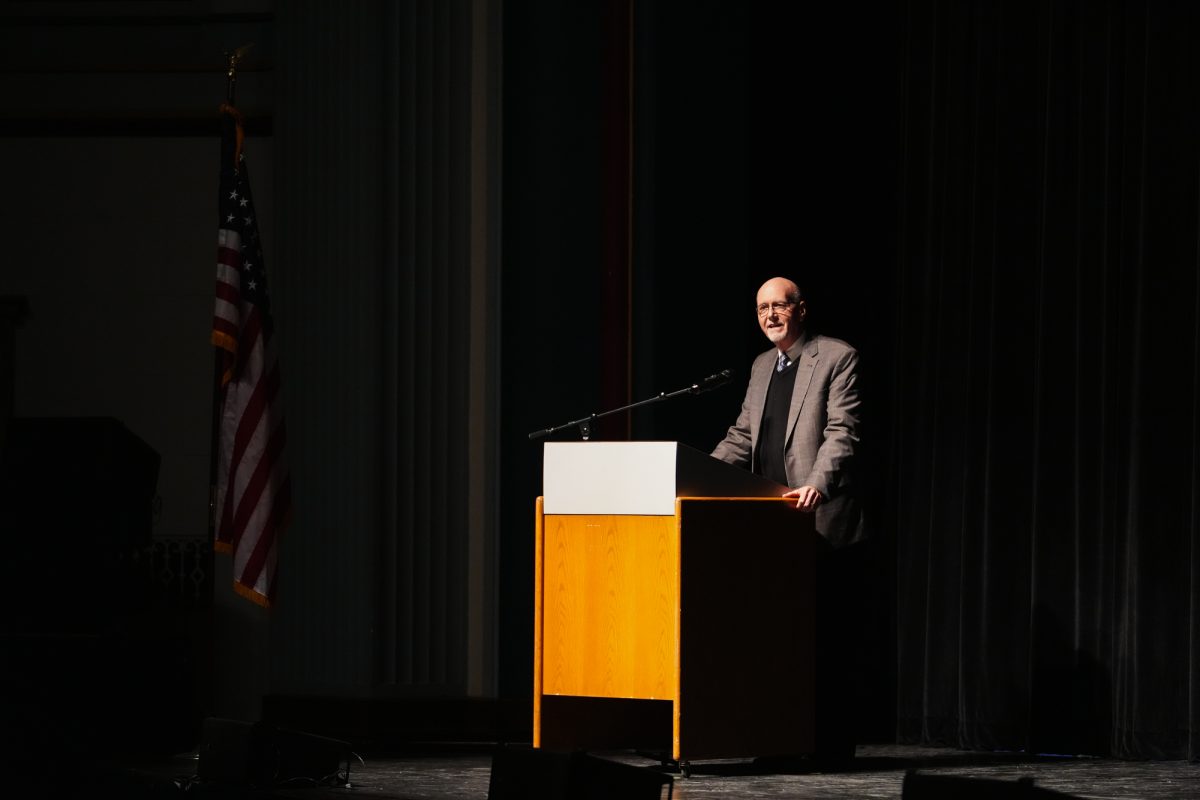Obama presses doctors to back health care overhaul
June 15, 2009
CHICAGO — President Barack Obama bluntly told doctors Monday he opposes their highest legislative priority — limiting malpractice awards — and got a smattering of boos from an audience he was here to court for his health care overhaul plan.
Vigorously defending the plan to reshape the nation’s health care system and extend coverage to millions who don’t have it, he also took on “naysayers,” ”fear-mongers” and other critics who he said are falsely portraying his effort as a big step toward a national government program.
Without offering specifics, Obama did tell the doctors that “excessive defensive medicine” conducted out of fear of lawsuits should be curbed.
A senior administration official said Obama is open to offering some sort of lawsuit protection for doctors but did not want to get into how — or even telegraph his support for the concept — in this speech intended more as a broad approach. The official spoke on condition of anonymity to more freely discuss the president’s behind-the-scenes strategy.
One week into a newly aggressive, personal campaign to turn his health-care goal into reality by the end of the year, Obama flew to his hometown to deliver one of the longest speeches of his presidency to the annual meeting of the American Medical Association, painting the need for change in dire terms.
Obama declared the nation’s current health care system, with its ever-rising costs and inconsistencies in care, a “ticking time bomb” for the federal budget. “If we do not fix our health care system,” Obama said, “America may go the way of GM — paying more, getting less, and going broke.”
He warned interest groups, lobbyists and others against using “fear tactics to paint any effort to achieve reform as an attempt to socialize medicine.”
GOP Rep. Tom Price of Georgia — a former orthopedic surgeon — reacted preemptively to Obama’s speech by accusing him of seeking a “government takeover” of health care. Speaking to reporters on a conference call organized by the national Republican Party, Price said a committee that Obama’s administration has established to study the effectiveness of various medical treatments would turn into a “rationing board” to overrule doctors and deny patients care.
Sen. Jon Kyl, R-Ariz., and other Republicans introduced legislation to ban rationing of care because of “comparative effectiveness research.”
Addressing the doctors in Chicago, the president said for the first time publicly that his health care overhaul, including covering the almost 50 million Americans who have no insurance, would cost about $1 trillion over 10 years.
“That’s real money, even in Washington,” he said. “But remember: That’s less than we are projected to have spent on the war in Iraq.”
“I need your help, doctors,” he said. “To most Americans, you are the health care system. The fact is, Americans — and I include myself, Michelle, and our kids in this — we just do what you tell us to do.”
Several doctors in the audience gave Obama high marks for his address and urged AMA leaders not to obstruct the overhaul. “AMA definitely needs to compromise because otherwise they will become irrelevant,” said Dr. Nicholas B. Vedder, a Seattle plastic surgeon.
Dr. Michael Goldrich, a New Brunswick, N.J., head and neck specialist, said he shares the president’s desire to focus on preventive medicine and improve health care access but opposes any kind of public insurance option. He was on the AMA’s board in 1993 during the failed Clinton health overhaul effort, and said that administration had no interest “in having a dialogue” with the organization. If the new president is willing to compromise, Goodrich said, “something good can come out of this.”
But the malpractice issue is the most provocative with this audience, which chafes at the heavy expense of malpractice insurance. Obama made no attempt to provide specific reassurance to the doctors on that score.
The president began by sympathizing with doctors “who feel like they are constantly looking over their shoulder for fear of lawsuits” and said he recognizes any health overhaul will be hard to accomplish without changing that. The crowd burst into loud support.
“Don’t get too excited yet,” Obama said as he prepared to deliver what he knew would be disappointing news.
“I want to be honest with you. I’m not advocating caps on malpractice awards,” the president said, greeted by a smattering of boos, a remarkable public response to a popular president accustomed to cheering audiences, especially in his home town.
Just by raising the hot-button and long-politicized issue of limiting lawsuits, even without specifics, Obama raised the antennae of trial lawyers’ groups. Trial lawyers adamantly oppose lawsuit limits — and are a major political funder for Democratic campaigns.
The Center for Justice and Democracy, which says it advocates for injured consumers, attorneys and others, released a letter to Obama signed by 64 survivors of medical malpractice saying they were “extremely concerned that the rights of medical malpractice patients may be stripped away as part of your national health care proposal.”
“The notion that ‘defensive medicine’ is leading to higher health care costs is not supported by empirical data or academic literature,” Les Weisbrod, president of the American Association for Justice, the main lobby for trial lawyers.
The president directly took on criticism from former Republican presidential candidate Mitt Romney, though not by name. On Sunday, Romney, called Obama’s desire to create government-sponsored insurance as an option alongside private coverage a “Trojan horse” to create a single-payer system like Britain’s.
“When you hear the naysayers claim that I’m trying to bring about government-run health care,” Obama said, “Know this: They are not telling the truth.”
He has taken steps in recent days to outline where money to pay for the fix could be found.
He wants to cut federal payments to hospitals by about $200 billion and cut $313 billion from Medicare and Medicaid over 10 years. He also is proposing a $635 billion in tax increases and spending cuts in the health care system as a “down payment” for his plan.
Obama told business leaders in March that medical liability issues “have to be on the table.”
Dr. J. James Rohack, the AMA’s president-elect and a Temple, Texas, heart specialist, said Obama seems open to the idea of shielding doctors who follow certain treatment guidelines from being sued.
As a senator in 2005, Obama co-sponsored legislation with Hillary Rodham Clinton that would have let patients learn of medical errors and negotiate compensation with the offer of an apology.





